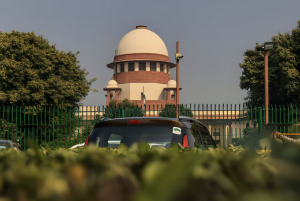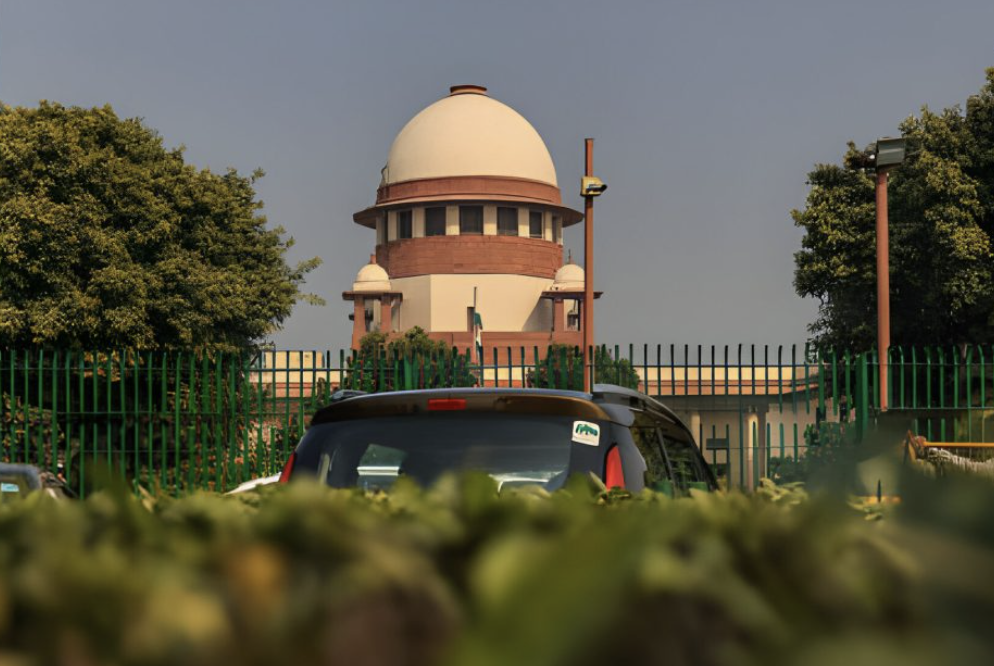Srinagar, Dec 29: The revocation of Jammu and Kashmir’s special status and the division of the former state into two union territories were approved by the Supreme Court, making it a historic year for the region. Additionally, the government led by Narendra Modi achieved a diplomatic coup by hosting the G20 summit in Kashmir Valley. Nevertheless, another year has gone by without the Jammu and Kashmir Legislative Assembly elections taking place, and the panchayat and urban local body elections that were scheduled for this winter have been postponed for the time being.The government’s decision to grant Jammu and Kashmir special status under Article 370 of the Constitution was upheld by a five-judge Supreme Court bench in August 2019, which dealt a massive blow to the BJP-ruled Centre. Regional parties have pledged to continue the fight for the restoration of special status, including the PDP and the National Conference, which was one of the petitioners against the Article 370 abrogation before the Supreme Court. “We don’t have to give up hope. We’re going to keep fighting. The Chief Justice is not God.The Supreme Court had previously ruled that the constituent assembly of Jammu and Kashmir must recommend any changes to Article 370. They were also intelligent judges. Today, the decision was made by a few more judges. Following the Supreme Court’s decision on December 11, PDP President Mehbooba Mufti declared, “We cannot treat it as God’s verdict.” “An illegal and unconstitutional act that occurred in Parliament was made lawful. Not only is it a death sentence for Jammu and Kashmir, but it is also a death sentence for the idea of India, according to Mufti.Omar Abdullah, the leader of the National Conference, stated that his party is ready for the long run. “I am not discouraged, but I am disappointed. The battle will go on. Regarding the Supreme Court ruling, Abdullah stated, “We are also ready for the long haul.” The Democratic Progressive Azad Party (DPAP) chairperson and former chief minister Ghulam Nabi Azad called the Supreme Court decision “sad and unfortunate,” but he added that everyone must accept it “with a heavy heart.” “We weren’t prepared for this choice. We were under the impression that the Supreme Court would take into account both the historical context in which Article 370 was added to the Constitution and the feelings of the people of Jammu and Kashmir. That was our hope, but regrettably it did not materialise, according to Azad.The general public, surprisingly, did not respond to the Supreme Court’s decision; instead, they carried on with their lives as usual. The BJP naturally rejoiced over the decision, but it also gained some points for hosting a significant G20 summit on tourism in Srinagar, where representatives from the majority of the member states were present. The G20 event’s hosting proved to be a significant boost for Kashmir’s development efforts as well, as Srinagar underwent significant changes and gained a number of new landmarks.
Lal Chowk’s historic Ghanta Ghar (Clock Tower) underwent a significant renovation as the town square grew in popularity as a tourist destination. In an effort to reduce pollution and improve accessibility, electric buses and e-rickshaws have been introduced, and the Jhelum Bund walkway has given city dwellers more options for an evening outing. Although there were many benefits, such as a significant improvement in Kashmir’s overall security situation, opposition parties have criticised the delays in holding elections for various bodies.The last assembly elections in Jammu and Kashmir were held in 2014, and they are long overdue given that the Jammu and Kashmir Reorganisation Act was passed by Parliament four years ago. The local body and panchayat elections, which were scheduled for November and December of this year, were last held in 2018. But the administration hasn’t provided an explanation for the postponement of these elections either. Throughout the year, terrorists targeted members of minority communities and security personnel, both on and off duty, despite the valley’s security situation improving. On January 1, terrorists killed four civilians in the Rajouri neighbourhood of Dhangri, and the same day, an IED explosion in the same area claimed the lives of two more civilians.This year, there were several significant terrorist attacks in the border districts of Poonch and Rajouri, resulting in the deaths of over 15 soldiers and 6 civilians. The attacks happened on April 20, at Bhatta Durain; on May 5, at Kesari Hills; and on December 21, at Dera Ki Gali. Terrorist strikes also occurred in the Kashmir Valley. An encounter with terrorists in the Kokernag area of the Anantnag district resulted in the deaths of a Colonel, a Major, and a Deputy Superintendent of Police. At Srinagar’s Eidgah ground, Police Inspector Masroor Ahmad Wani lost his life after being attacked by a terrorist while playing cricket.This month, terrorists shot and killed a retired senior superintendent of police while he was reciting the “azaan” inside a mosque in the Baramulla district.


